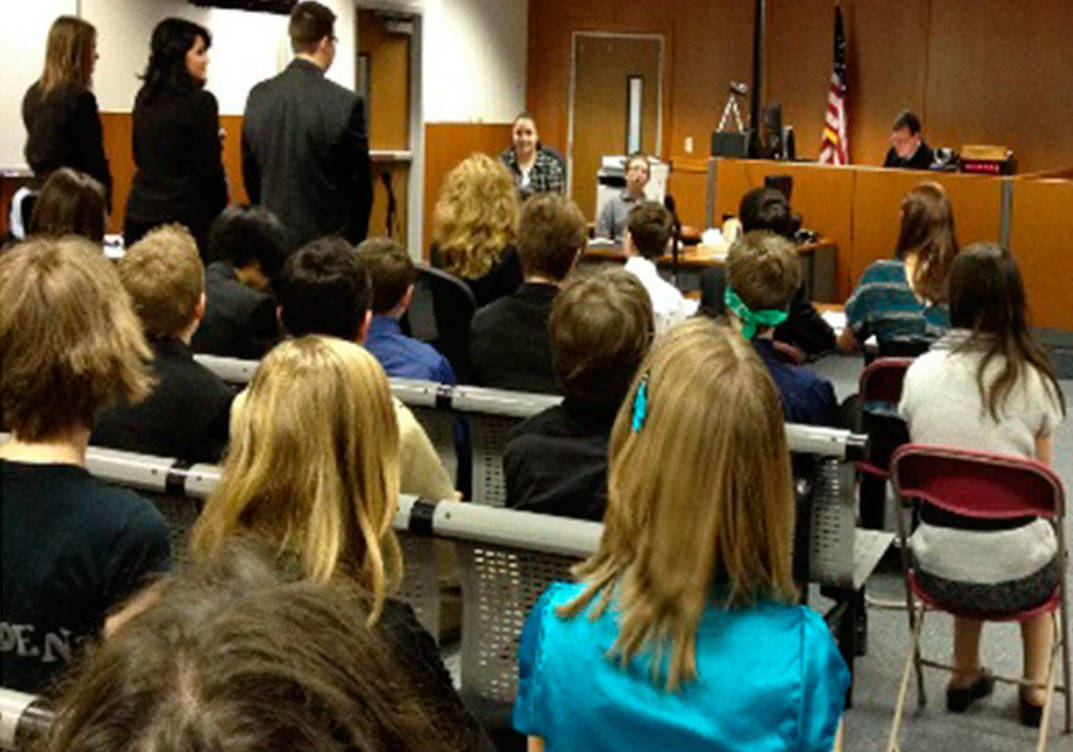ARLINGTON – When Marysville’s new municipal court and jail open next year as part of a major Civic Campus project, one neighbor city that has used its justice services for years is going elsewhere.
The Arlington City Council Monday authorized the city attorney to send a letter to Marysville city leaders asking to amend an interlocal agreement for court services that has been in effect since 2003.
In the Dec. 27 letter to the Mayor Jon Nehring and chief administrative officer Gloria Hirashima, Arlington City Attorney Steve Peiffle wrote that the city wants to end its agreement, and move Arlington’s court and jail services to Cascade District Court and the Snohomish County Jail, effective March 1, 2020.
“Those two go together, meaning you want to use the same jail services where you’re going to hold court,” City Administrator Paul Ellis said.
“Our move is a reflection of the growth occurring in both of our jurisdictions,” he added.
Ellis explained that Marysville’s jail isn’t meeting the needs of its biggest user – itself. While the new jail will increase from 57 beds to housing 110 inmates in 50 cells, the city is just now moving ahead with construction.
“We still have concerns about the new jail, and their capacity since Marysville is growing, too,” Ellis said. “We need to be able to move offenders into the jail, and that has been challenging.”
A spin-off of the bottleneck has been extremely high warrant rates for Arlington cases because the justice system can’t get those offenders in on charges.
The Marysville jail serves Marysville, Arlington and Lake Stevens, and also holds inmates for Tulalip Tribes and federal inmates. Arlington and Lake Stevens contract with Marysville for court services.
According to statistics, total cases filed were 12,474 in 2018 and 13,265 in 2019. Within those filings, Arlington accounted for 1,822 in 2018, climbing to 2,444 in 2019, a 34% increase.
Driving under the influence filings in Arlington increased from 45 to 105 – a 133% increase, due more to a growing population and fluctuating crime rates than a police force that is at full staffing after a series of down years.
Also on the rise were traffic infractions, which rose from 1,032 in 2018 to 1,129 a year later, or 9%, and criminal non-traffic cases, such as misdemeanor and gross misdemeanor theft, assault, trespassing and animal violations, which jumped from 456 in 2018 to 559 in 2019, a 23% increase.
The Marysville jail hosted 3,014 inmates in 2018 and 2,638 in 2019. Among those numbers, Arlington accounted for 440 inmates in 2018, and 391 last year, excluding December counts, which weren’t available at press time.
By comparison, the county jail hosts over 850 inmates on average. Over 20,000 people were booked into the facility in 2018.
Ironically, it was lack of capacity at the county jail in 2003, and to a lesser extent too little input in county prosecutor charging decisions, that drove Arlington to turn to Marysville, Police Chief Jonathan Ventura said.
Now the reverse is true.
Ventura said the county jail has capacity, and the court and prosecutor are amenable to handling cases in the same manner as they were in Marysville.
The ask is not a surprise to Marysville leaders. Staff-level discussions have been happening between the cities.
The court services agreement requires written notice to Marysville of not less than 180 days prior to the agreement expiring.
Ellis emphasized that Arlington’s desire to move back to the county isn’t based on level of quality.
As part of the transition, the city would transfer its existing caseload to district court and file new cases with Arlington’s contracted prosecutor; review pending cases and consider dismissing some cases that don’t involve driving under the influence or domestic violence assaults; while other current filings would move through the judicial process as quickly as possible.
Peiffle wrote that Arlington plans to ensure a smooth transition to the district court in early 2020. This may include increased calendars during the transition period, which could last up to two months.
City Councilwoman Jan Schuette said it’s important for the public to know that it costs a lot to arrest and jail individuals. Last year, the city was on the hook for over $1 million for public defender and jail costs, including medical care, which for December, as an example, ran $6,000. “We pay for everything.”
Ellis said the city budgeted $1.2 million in 2020 for jail and court services.



